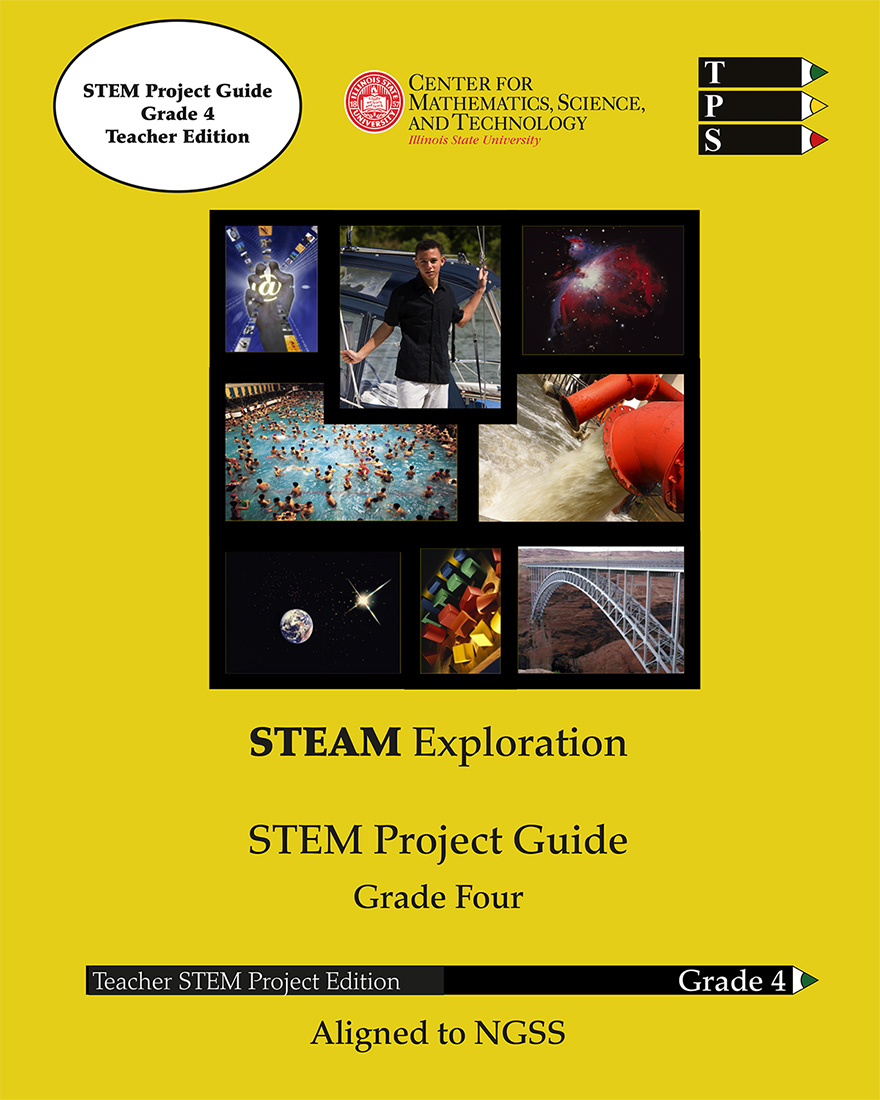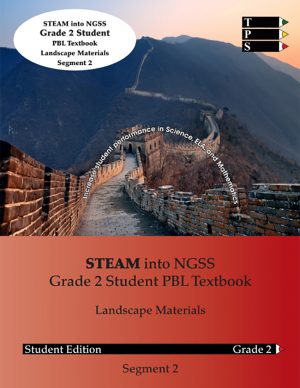TPS partner with CeMaST, Illinois State University. The Center for Mathematics, Science, and Technology (CeMaST) at Illinois State University (ISU) has been developing STEM instructional material for over 25 years making it one of the oldest STEM Centers in the nation. The professors working at this location have spent decades researching and creating STEM projects that are career aligned and built following the DAPIC process.
The projects are exciting and exactly aligned to cover a group of performance expectations. The students build to learn; we believe students learn best by doing.
Students lead their own inquiries and yes, at times, will struggle. The work demands critical thinking where teachers and parents need to step back and allow the students to follow a path of discovery. TPS provide personalized materials kits built to suit your needs and budget and provide support for implementation throughout the school year.
STEAM Explorations curriculum has been developed to create a strong foundation of the knowledge and skills laid out in the framework that will help prepare students to enthusiastically and confidently approach progressively more advanced concepts and skills in the middle grades, high school and beyond. Each lesson addresses a performance expectation in one of the three major science disciplines, Life Science, Physical Science and Earth and Space Sciences which is the vehicle through which the performance expectation will be executed, a disciplinary core idea and a cross-cutting concept. Lessons are grouped sequentially by common disciplinary core ideas. Students learn to practice science through processes used by scientists and engineers. They ask questions and define problems, develop and use models, plan and carry out investigations, analyze and interpret data, use mathematics and computational thinking, construct explanations and design solutions, engage in argument from evidence and obtain, evaluate, and communicate information.
STEAM Exploration STEM Project Guide – Grade 4 Teacher Edition
$20.63
STEAM Explorations is the higher level TPS integrated curriculum and has been developed to create a strong foundation of the knowledge and skills laid out in the framework, helping prepare students to enthusiastically and confidently approach progressively more advanced concepts and skills across the grades. Each lesson addresses a performance expectation in one of the three major science disciplines, Life Science, Physical Science and Earth and Space Sciences which is the vehicle through which the performance expectation will be executed, a disciplinary core idea and a cross-cutting concept. Lessons are grouped sequentially by common disciplinary core ideas. Students learn to practice science through processes used by scientists and engineers. STEAM Exploration lessons are constructed to invite students in to explore a concept. The program comprises a STEM project guide, Teacher and Student by Segment texts, Vignettes, 3 tiered assessments with rubrics, and online assessment tools and libraries; TPS STEAM Science/ELA/Math/Crosscutting/Special education PSHE Library and Reteach and After school projects.
By making observations of natural phenomena, constructing simple models of a system or phenomenon that can be used to test their ideas, analyzing data, obtaining information from reliable resources or formulating an argument supported by evidence.
Focus questions and suggested data collection formats are used to guide, but not limit, their investigations. A brief reading introduces and provides some background on the topic and raises questions. Focus questions are used to rouse curiosity, initiate thinking and to guide the direction of investigation, the interpretation of collected data and the formulation of arguments.


